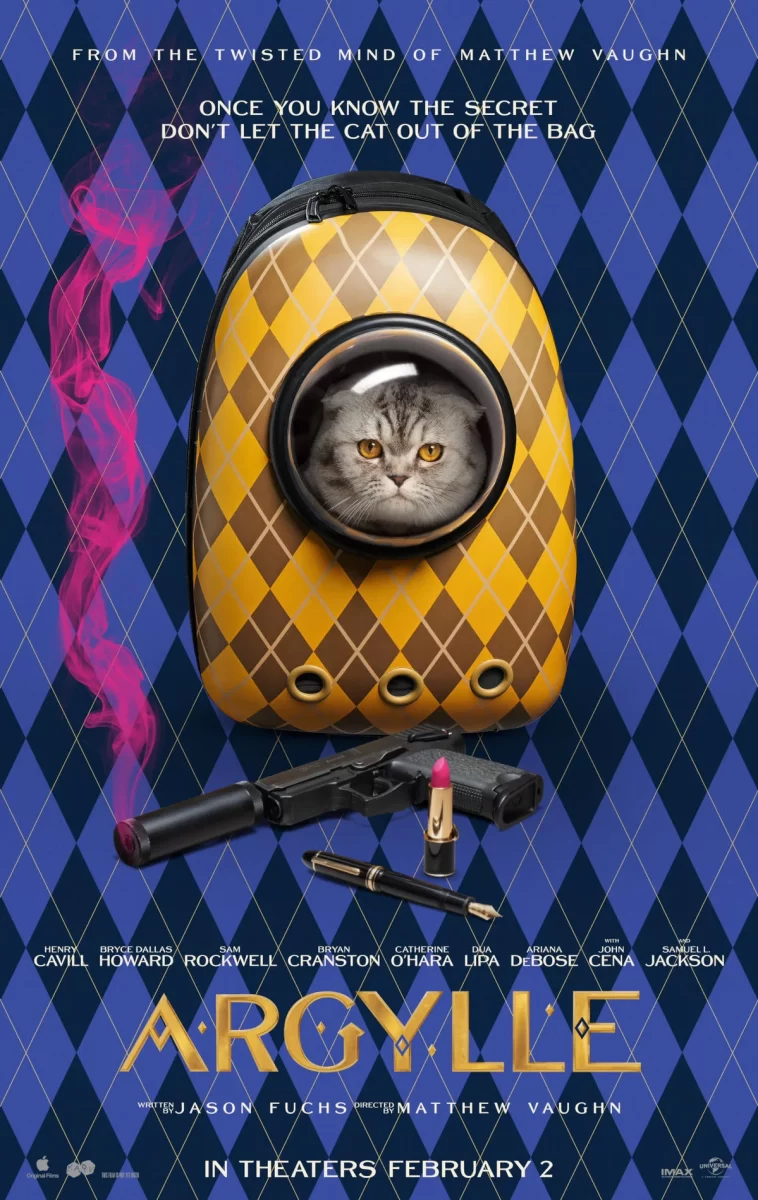In all the fields of spy-action thrillers, from “James Bond” to “Catch Me A Spy,” never before have I seen a film so messily executed. Of all of Matthew Vaughn’s works, “Argylle” is easily the worst. The film follows introverted bestselling spy novelist Elly Conway (Bryce Dallas Howard) after she is caught in the deep, deep waters of international controversy when it is found her books happen to mirror reality a little too closely.
On a trip to visit her parents, cat-obsessed Conway is saved from an ambush by Aidan Wydle (Sam Rockwell), a spy claiming that an antagonistic organization referred to as the Division believes that her novels successfully predict the future. Wylde and Conway promptly decide to travel to London in hopes of finding a USB drive holding information that is key to the Division’s downfall and that prompts the start of a very confusing, conflicting, messy plot.
Sound confusing? That is, putting it bluntly because it is. The film is a mess, the acting is mediocre and the plot is lax, stupid, undercooked and predictable. For every spy-thriller movie trope in existence, there is a nod to “Argylle.” And oh, my, how quickly they pile to overwhelming numbers.
Something else that irked me in this film was the excessive use of CGI. The film is full of it, from backgrounds to props to settings to special effects to, at times, the characters themselves. Conway’s cat, Alfie, I am certain was at times completely AI-generated, despite credits being given to “Chip.”
A big part of the charm of old ’60s spy movies, the ones that “Argylle” is doubtlessly trying to copy, is the clunkiness. There’s a charm in janky old films, one that disappears entirely when you can tell because you can just tell– that what you’re seeing is simply not real.
It’s also ironic that the Beatles’ “Now and Then,” a song they never actually recorded and only exists thanks to artificial intelligence, is so relevant in the movie. So much of this film is obviously AI and the presence of a new song sung by a man who died forty years ago only seems to make it more insulting.
Pleasure is extractable from “Argylle.” It has a few funny moments and some of the fight scenes are well-choreographed and fun to watch, particularly earlier in the film. But as it progresses, it truly only gets worse.
Upon Conway’s discovery of her past life, she completely changes her personality and the film is no longer fun to watch. The timid, wide-eyed novelist persona (one of the most unique aspects of the film) vanishes in the blink of an eye; she is replaced by an annoyingly confident, blown-up version of a badass Hollywood star, complete with a smutty haircut and a surprisingly practical sparkling golden dress.
As I say often, there was an interesting idea here. I liked the concept of a writer getting drawn into their own creations. But this is, most certainly, not the way to do it. This film is no short of a mess.

